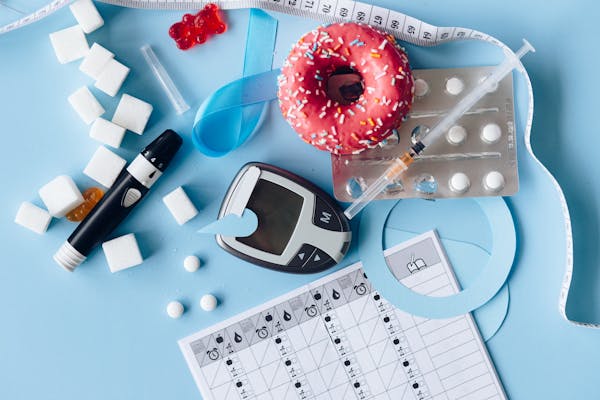Relapse of Bipolar Disorder During Pregnancy Increases Risk of Postpartum Illness
[ad_1]
In planning for being pregnant, females with bipolar disorder and their treatment providers are forced to make difficult decisions. In the environment of medication discontinuation, relapse fees are important, and there is evidence that untreated psychiatric disease in the mother is linked with even worse maternal and fetal outcomes. However, a lot of of the prescription drugs usually utilized to address bipolar condition, especially lithium, have a tiny but measurable increase in possibility of teratogenesis. The reproductive safety of other prescription drugs, such as atypical antipsychotic remedies, is not nicely characterised. These choices are more complex by the paucity of facts about the system of bipolar health issues for the duration of being pregnant.
A latest analyze from the United Kingdom looks specially at recurrence of sickness through being pregnant and the postpartum interval in a group of women of all ages with bipolar condition. This review integrated 128 women with DSM-5 bipolar condition (BD) who had been recruited to the Bipolar Condition Exploration Community Being pregnant Examine and were being followed from 12 weeks of gestation to 12 months postpartum. Semi-structured questionnaires, supplemented with clinician interviews and critique of the clinical history, had been employed to assess for life span psychiatric heritage and psychiatric sickness in the course of being pregnant and the postpartum follow-up.
In this cohort, 98 girls experienced bipolar I disorder/schizoaffective-BD (BD-I group) and 26 bipolar II disorder/other specified BD and associated ailment (BD-II team). The two groups were being comparable, even though the gals in the BD-II group experienced previously onset of health issues and had additional frequent depressive episodes than ladies with BD-I. Information and facts relating to the use of medications during pregnancy was not reported. About 40% of the women of all ages in each and every team utilized a temper stabilizer all through the postpartum time period.
- Perinatal recurrence of illness was typical in each groups: 57% (BD-I) and 62% (BD-II) expert a mood episode during pregnancy.
- Gals with BD-I ended up more possible to encounter mania/psychosis through being pregnant than gals with BD-II (13.5% vs. %).
- Gals with BD-I were being a lot more most likely to experience mania/psychosis in 6 weeks postpartum (23%) in comparison to ladies with BD-II (4%).
- In females with BD-I, mania/psychosis all through pregnancy was linked with a sevenfold improved threat of postpartum mania/psychosis (RR 7., p<0.001).
In women with BD-I, depression during pregnancy was associated with a threefold increase in risk of postpartum depression (RR 3.18, p=0.023).
This study is consistent with previous reports suggesting that risk for perinatal recurrence of bipolar disorder is high, with approximately 60% of women with bipolar disorder (type I or II) experiencing recurrent illness during pregnancy and/or the postpartum period. Also consistent with previous reports is the finding that depressive episodes are more common than mania in women with BD-I and BD-II however, mania/psychosis is much more common in women with BD-I than those with BD-II. (In this study, only one of the 26 women with BD-II experienced postpartum mania/psychosis.)
The Importance of Remaining Well During Pregnancy
Of great clinical significance is the observation that women who experience recurrent illness during pregnancy are more likely to experience illness during the postpartum period. The highest risk was observed in women with BD-I in this study, women who experienced mania/psychosis during pregnancy had a sevenfold increased risk of experiencing postpartum mania/psychosis. Overall, recurrence of illness during pregnancy (depression or mania) was associated with a twofold increase in risk for postpartum illness.
It is clear that risk for postpartum psychiatric illness, including postpartum psychosis, is high in women with bipolar disorder. Previous studies have demonstrated that risk for postpartum illness can be reduced significantly with the use of a mood stabilizer, such as lithium, during the postpartum period. However, given the risks associated with the use of certain mood stabilizers during pregnancy, many women and their providers elect to discontinue mood stabilizers during pregnancy. This study confirms previous studies documenting high rates of recurrent illness during pregnancy in women with bipolar disorder, but the findings of this study also suggest that the discontinuation of mood stabilizers during pregnancy may have significant implications for vulnerability to postpartum psychiatric illness.
In women with unipolar depression, relapse during pregnancy is a robust predictor of postpartum depression this study indicates that for women with bipolar disorder, recurrent illness during pregnancy, especially mania or psychosis, is a robust predictor of postpartum psychiatric illness. While certain mood stabilizers, including lithium carry some risk of teratogenesis, we need to weigh the relatively small risk of teratogenesis in mood stabilizers, excluding valproic acid, against the very high risk of recurrent illness during pregnancy in the mother. Avoiding medication during pregnancy and restarting it after delivery may not be the best option. This study, and others, suggests that keeping the mother well during pregnancy will reduce the risk of postpartum psychiatric illness.
Ruta Nonacs, MD PhD
Perry A, Gordon-Smith K, Di Florio A, Craddock N, Jones L, Jones I. Mood episodes in pregnancy and risk of postpartum recurrence in bipolar disorder: The Bipolar Disorder Research Network Pregnancy Study. J Affect Disord. 2021294:714-722.
Related Posts
[ad_2]
Resource hyperlink




